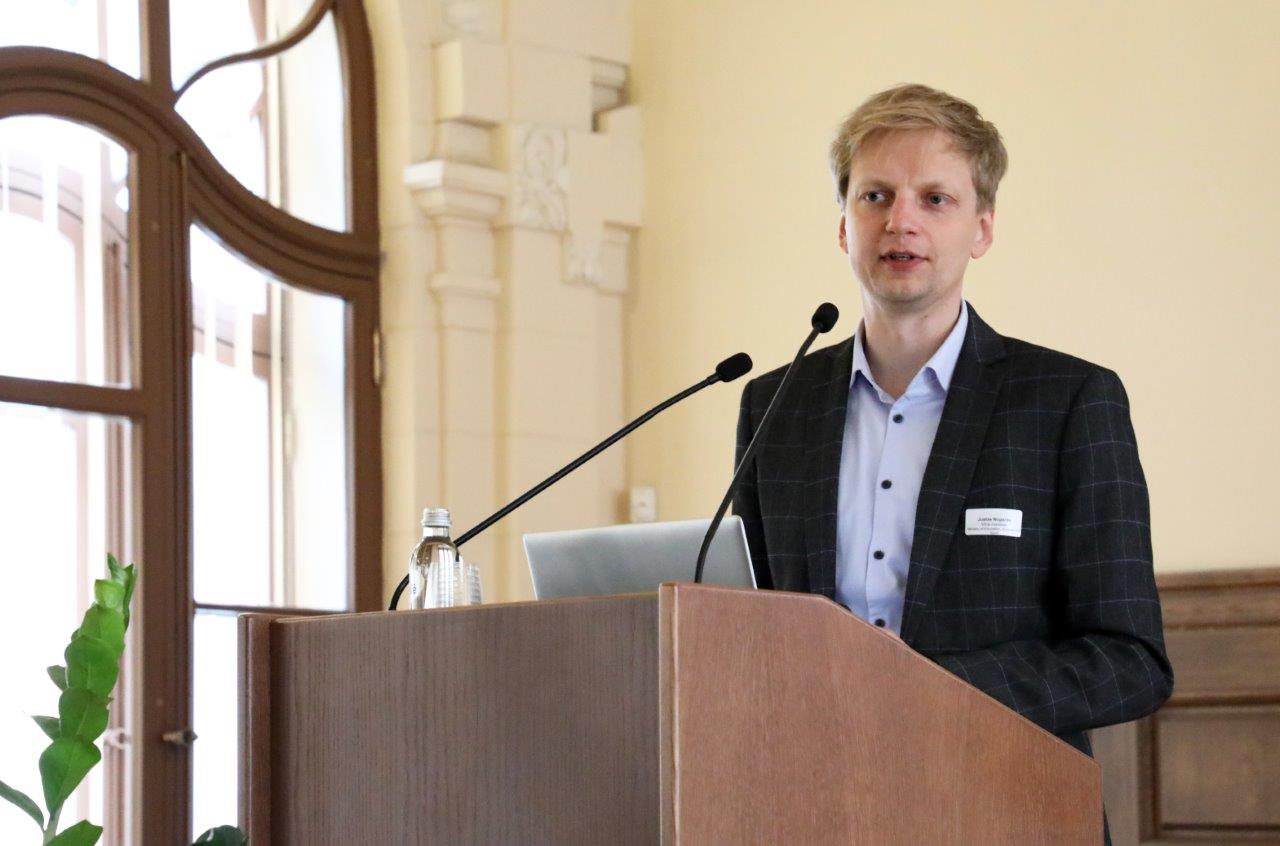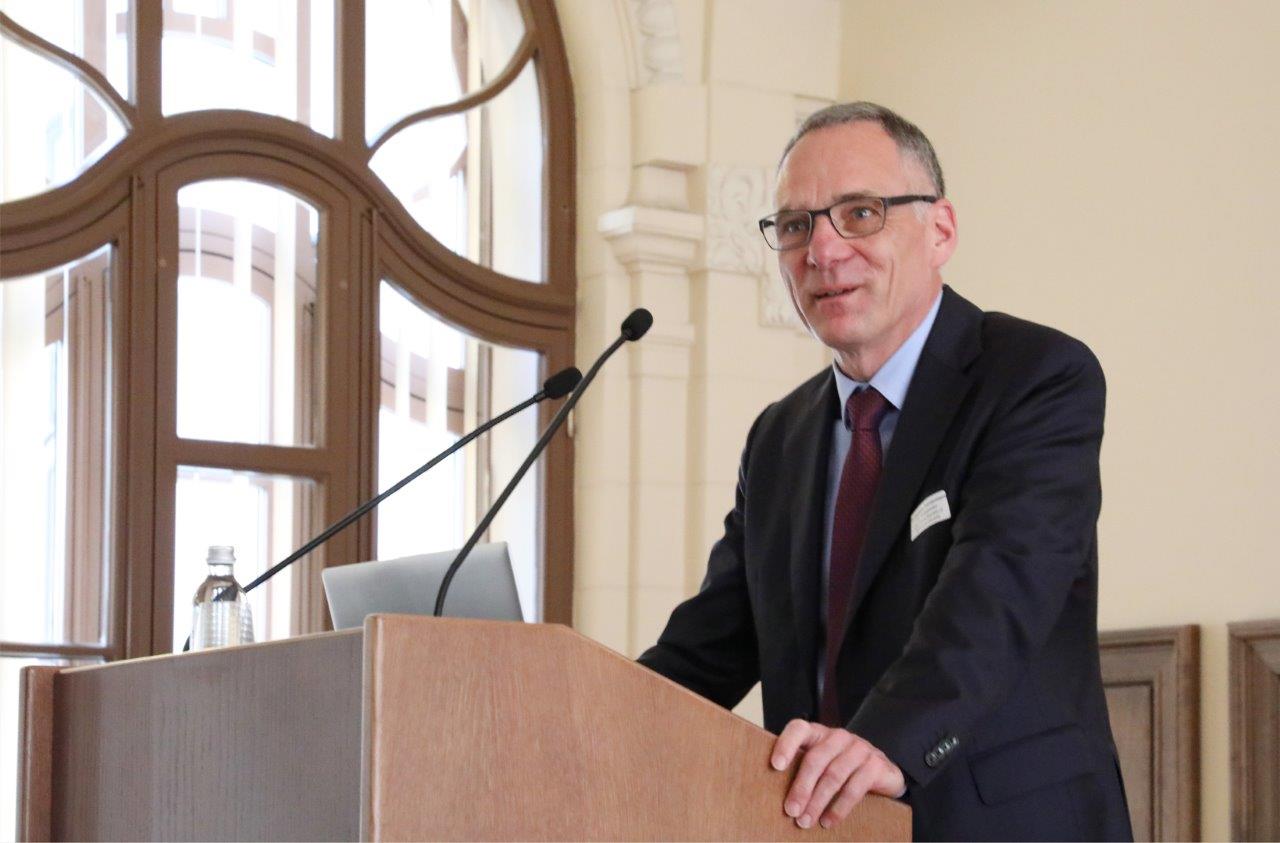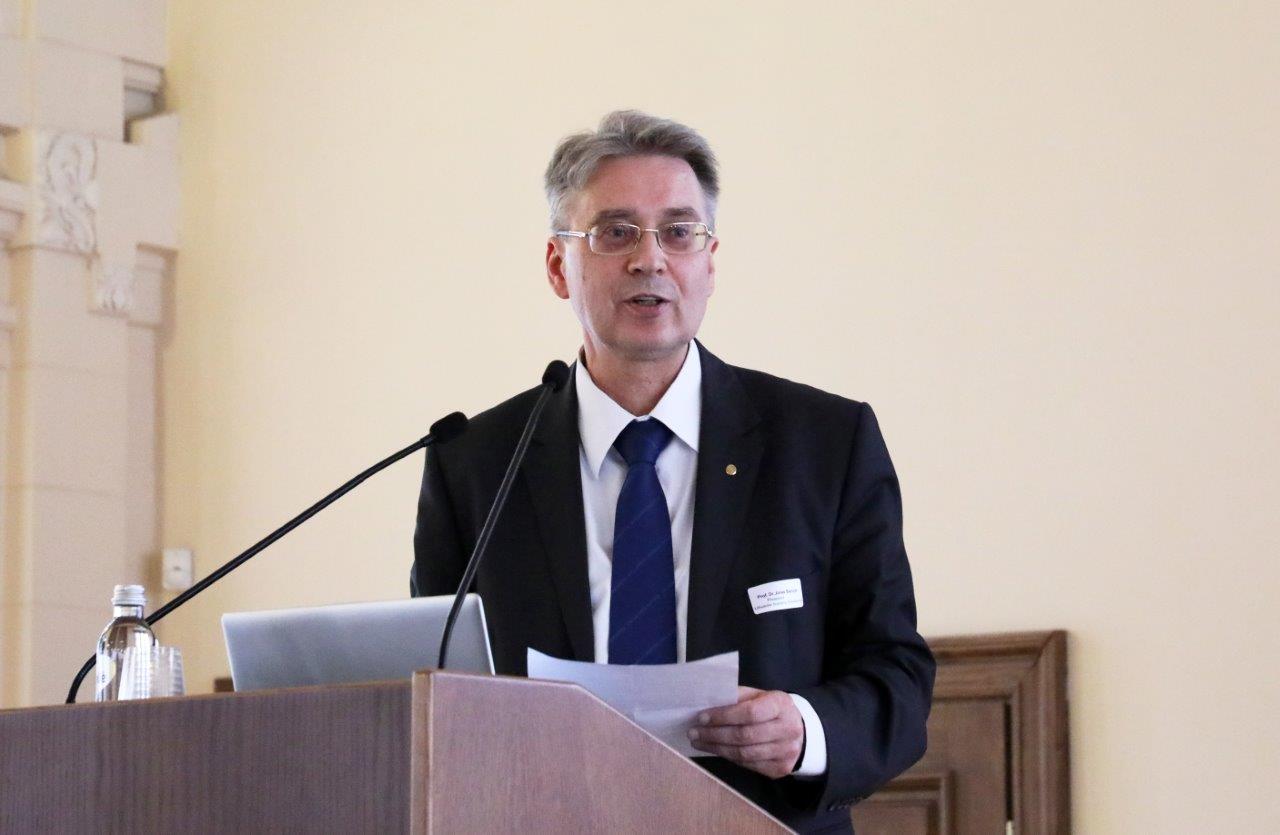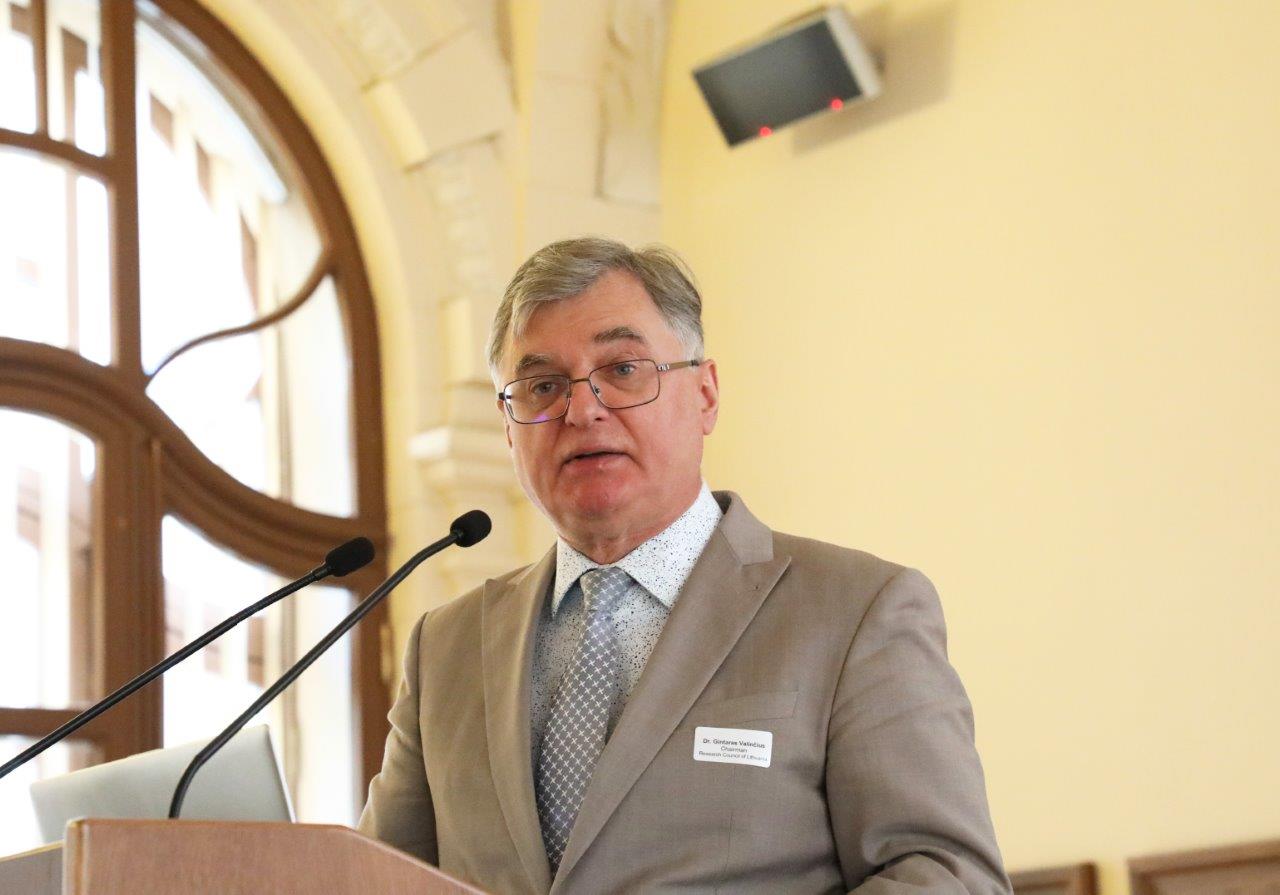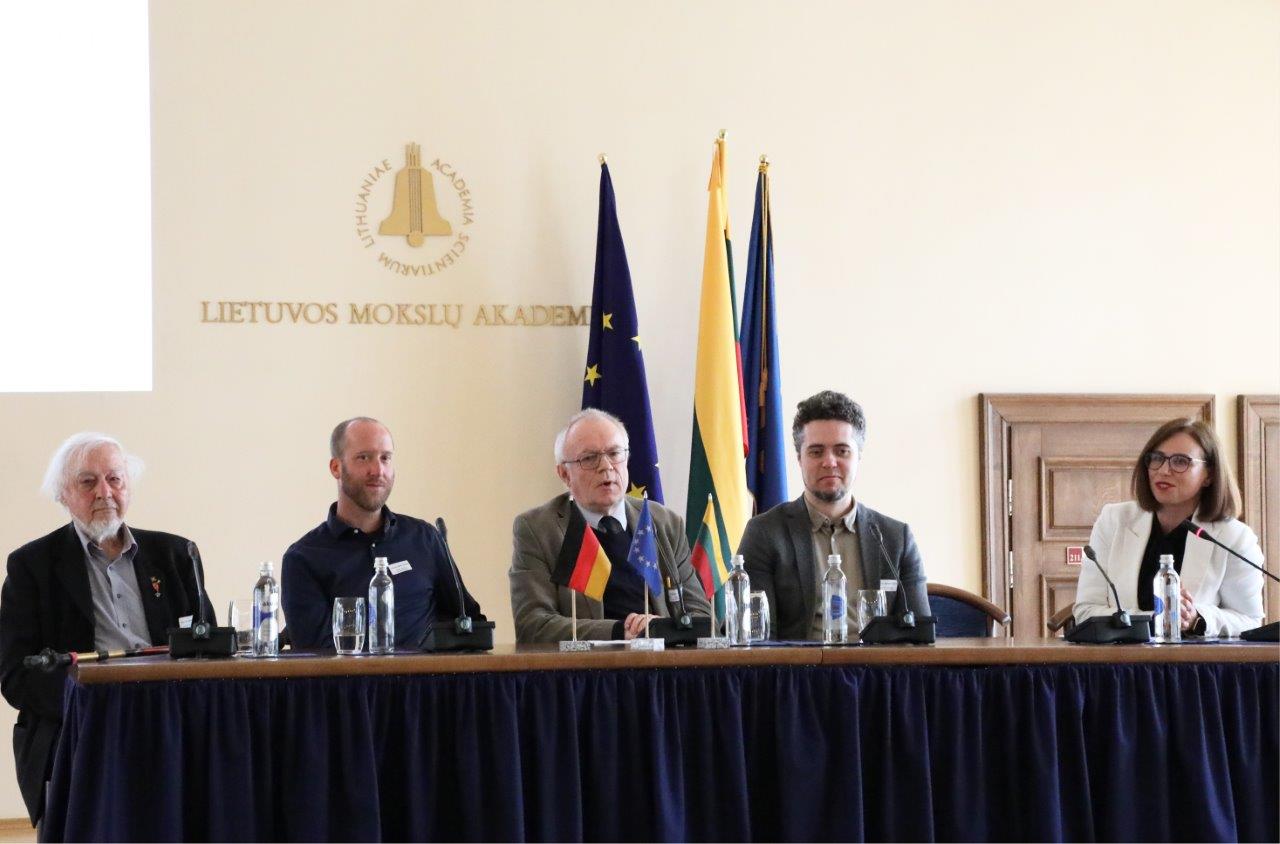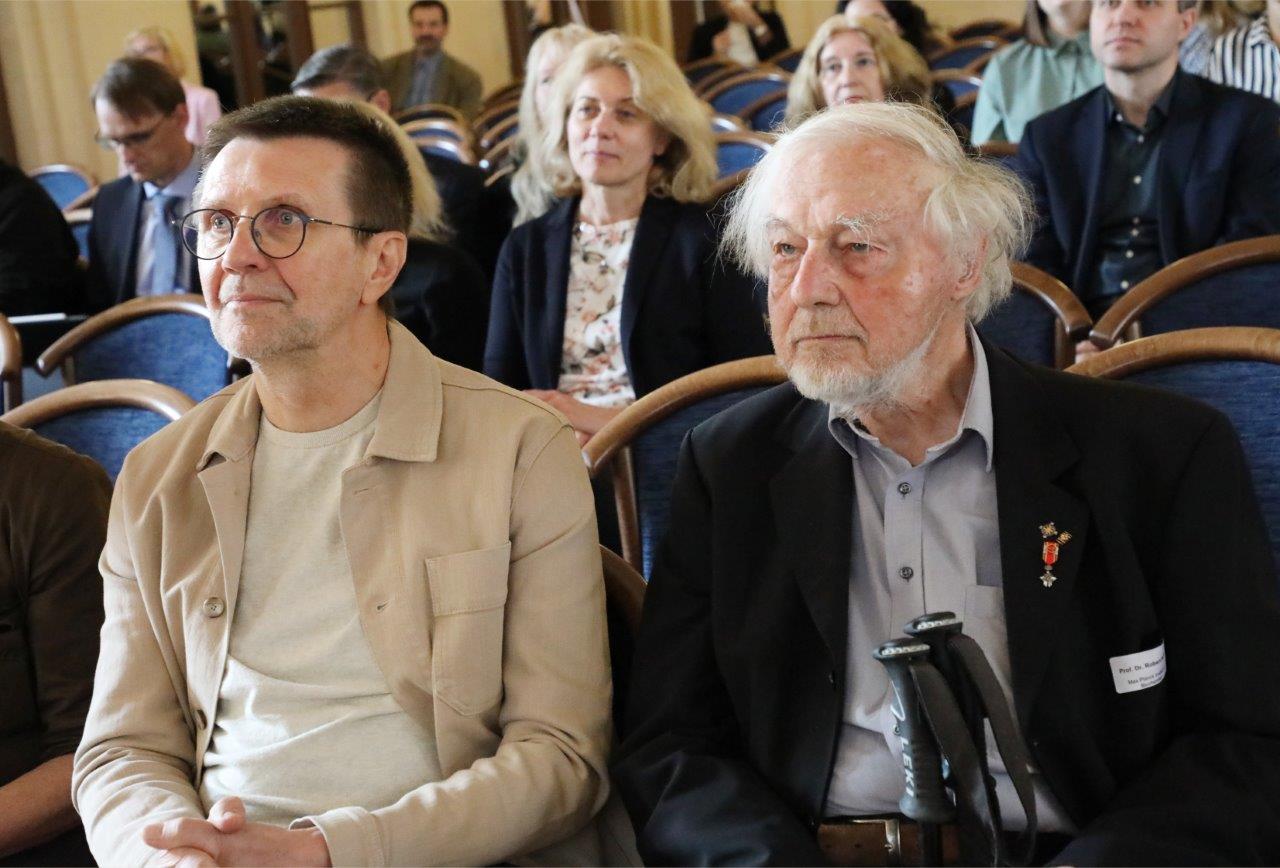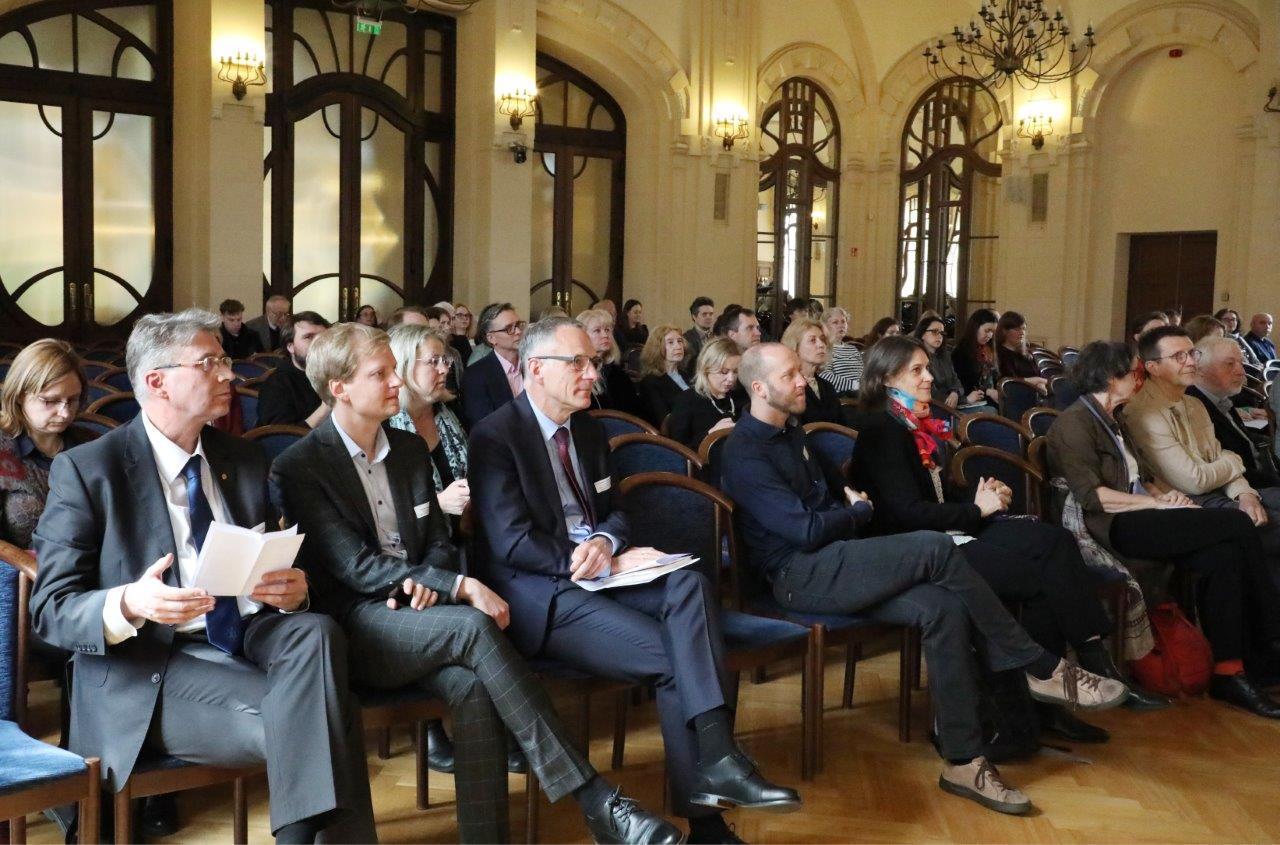DFG at German-Lithuanian information event in Vilnius
Welcome speech by Jusus Nugaras, Deputy Minister of the Lithuanian Ministry of Education, Science and Sport.
© Lithuanian Academy of Sciences/Virginija Valuckiene
With the Baltic states becoming increasingly important as partner countries in the area of research cooperation, the DFG has been intensifying its institutional ties with research funding organisations and academies of science in Estonia, Latvia and Lithuania for some time now. Held jointly with the Lithuanian Academy of Sciences and the Research Council of Lithuania in Vilnius on 7 May 2024, the information event reflected a shared endeavour to further advance and underpin bilateral research cooperation between Lithuania and Germany. It was attended by approximately 70 researchers from numerous Lithuanian universities and research institutions.
Organised as a half-day information event for doctoral researchers and researchers in early career phases from universities and other research institutions in Lithuania, the gathering took place in the large banquet hall of the Lithuanian Academy of Sciences. Home to both the Academy of Sciences and the Research Council of Lithuania, this prestigious building provided the perfect setting for the event, which was both academic and festive in character.
The event opened with welcome speeches by Justus Nugaras, Deputy Minister of the Lithuanian Ministry of Education, Science and Sport, and Dr. Cornelius Zimmermann, the Ambassador of the Federal Republic of Germany to Lithuania. In their opening words, the two speakers emphasised the growing importance of bilateral ties for the development of relations between the two countries, also involving collaboration in the area of science and research. Introductory talks were given by Professor Dr. Jūras Banys, the host and President of the Lithuanian Academy of Sciences, Dr. Gintaras Valinčius, Chair of the Research Council of Lithuania, and Dr. Jörn Achterberg, Director of the DFG’s European Division: they highlighted the current state of scientific collaboration between the two countries while also giving examples of its future potential and quality. Germany ranks among the top countries for joint publications by Lithuanian researchers in collaboration with international colleagues, for example.
The introductory talks were followed by short presentations on relevant research funding opportunities for bilateral research cooperation, given by the Research Council of Lithuania, the German Academic Exchange Service (DAAD, represented by its regional information office in Riga), the Humboldt Foundation (online), and the DFG. To conclude the event, a panel discussion was held involving researchers of various disciplines from Lithuania and Germany and hosted by Aurelija Povilaikė, Head of the National Contact Point of the Research Council of Lithuania. Participants reported on their experience of research cooperation, shared examples of successful projects and offered valuable insights and tips to encourage audience members to initiate bilateral research projects of their own.
One particular highlight of the panel discussion was the involvement of the renowned German Nobel Prize winner for chemistry, Professor Dr. Robert Huber of the Max Planck Institute of Biochemistry in Martinsried near Munich. Delivered with his Lithuanian cooperation partner Professor Dr. Virginijus Šikšnis of the Nature Research Centre, Vilnius University, his talk conveyed especially vividly how far-reaching and enduring transnational cooperation can be.
Having travelled to the event from all parts of the country, the audience were grateful for the opportunities on offer and made the most of the subsequent lunchtime snack to engage in more detailed discussion and networking. The DFG and its Lithuanian partners plan to expand their institutional relations further in future and offer close-knit support for cooperation between researchers from both countries. Further information events are planned in Estonia and Latvia in the coming months, too.
